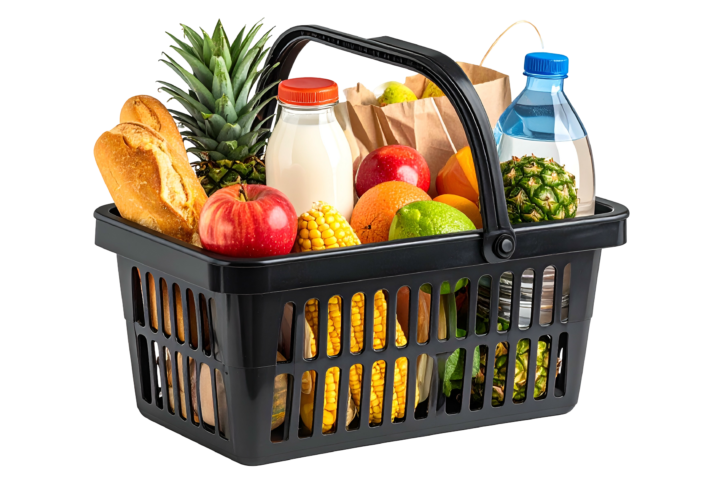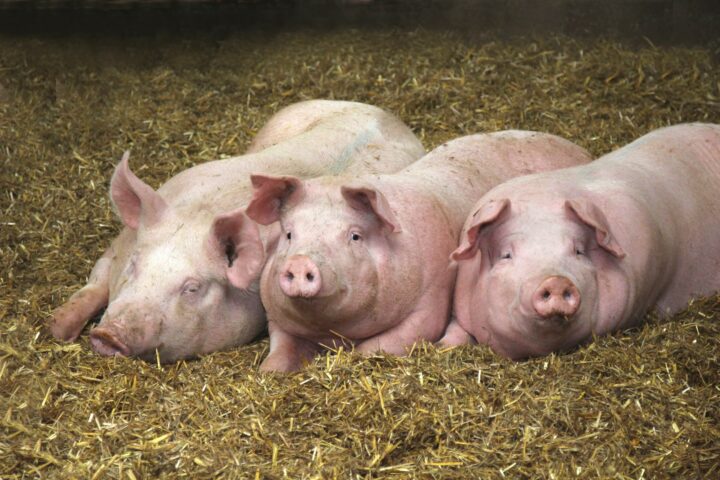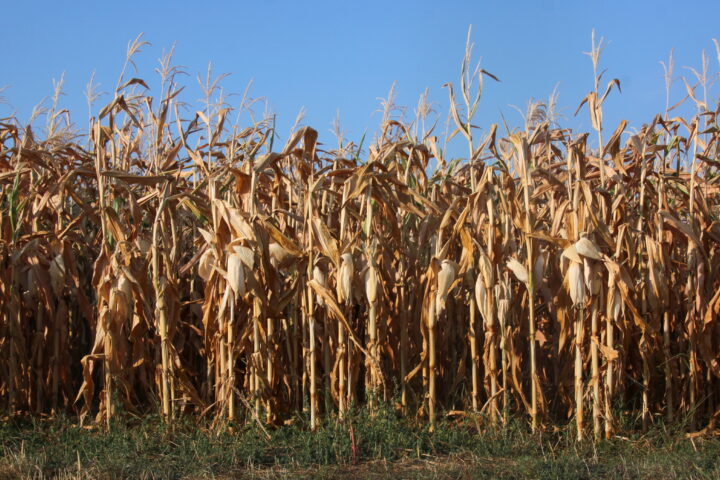
Animal feed: Domestic rapeseed instead of imported soy
The origin of animal feed in agriculture has come into political focus: BioSuisse wants to reduce the proportion of foreign concentrated feed, and the Drinking Water Initiative even wants to allow only farm-produced feed. The protein-rich press residues of rapeseed would be ideally suited as feed for livestock with the help of "genome editing". Instead of imported soy, domestic rapeseed could be fed to animals. This makes ecological sense and strengthens regional production.
Thursday, May 14, 2020
In brief
- With the help of the CRISPR/Cas9 gene scissors, rapeseed press residues could be used as animal feed in the future.
- This would mean that less animal feed, such as soy, would have to be imported from abroad.
- From an ecological perspective, this makes sense.
Rapeseed is the most important plant in Europe for the production of oil. Oil production produces press residues that have a high protein content and a favorable composition of amino acids. These are good prerequisites for use as animal feed. However, the plants also contain large amounts of phytic acid. The antinutritional properties of this substance limit the use of the press residues as feed for animals. By means of genome editing, the content of phytic acid in rapeseed grains could be significantly reduced and the feed quality of rapeseed meal and rapeseed cake improved. Researchers at Kiel University were able to use the CRISPR/Cas9 gene scissors to induce targeted changes in those genes involved in the synthesis of phytic acid. As a result, the phytic acid content of certain plants could be reduced by a third (27-35 percent).
Fewer imports, more regional products
The development of alternative protein sources such as rapeseed strengthens regional production and also makes ecological sense. Growing rapeseed with lower levels of phytic acid gives local farmers the opportunity to produce additional good quality animal feed without changing the characteristics of the crop for oil production. Thus, a significantly higher output can be achieved on the same area of land. Such sustainable intensification results in more land for biodiversity conservation. Indigenous animal feed also reduces dependence on CO2-intensive feed imports such as Brazilian soy.
Less food loss thanks to firmer grains
New genetic engineering techniques such as genome editing can improve the properties of crops. One example in rapeseed is increasing pod firmness. When threshing, it is common for ripe rapeseed pods to burst open. With firmer pods, bursting can be prevented and less rapeseed is lost in the field. This is reported by "Schweizer Bauer" in its print edition of March 31, 2021.
Sources
Related articles

What’s Really in Your Shopping Basket
Genetic engineering in our shopping basket? Yes – and much more often than we think. Whether it’s pasta, bread or vegetables: many of the everyday products we consume come from mutation breeding, which involves altering the genome and is considered safe. It’s high time to debunk the common myths.

Genomic breeding methods are not given a chance to prove themselves
Modern genomic breeding methods are legally classified as genetic engineering – and are therefore still effectively blocked. Yet we have been eating genetically modified plants for decades, just under the label of “classical mutagenesis.” The new, more precise techniques are regulated more strictly than the old ones, even though they are considered safer from a scientific perspective. A contradiction that urgently needs to be corrected. The EU is setting a good example.

No Pig Business: Why Testicle-Free Boars Are a Clear Win for Animal Welfare
New breeding methods are opening up new possibilities in both plant and animal breeding. They allow targeted genetic changes that can make animals more resilient, adaptable, and healthier.

Stagnation instead of progress: Switzerland risks falling behind in new breeding techniques
An overview article in Schweizer Bauer shows how much the new breeding methods are preoccupying farming circles. Once the consultation process on the federal law has been completed, a bill is expected – then it will become clear whether there is actually the political will to approve it.

